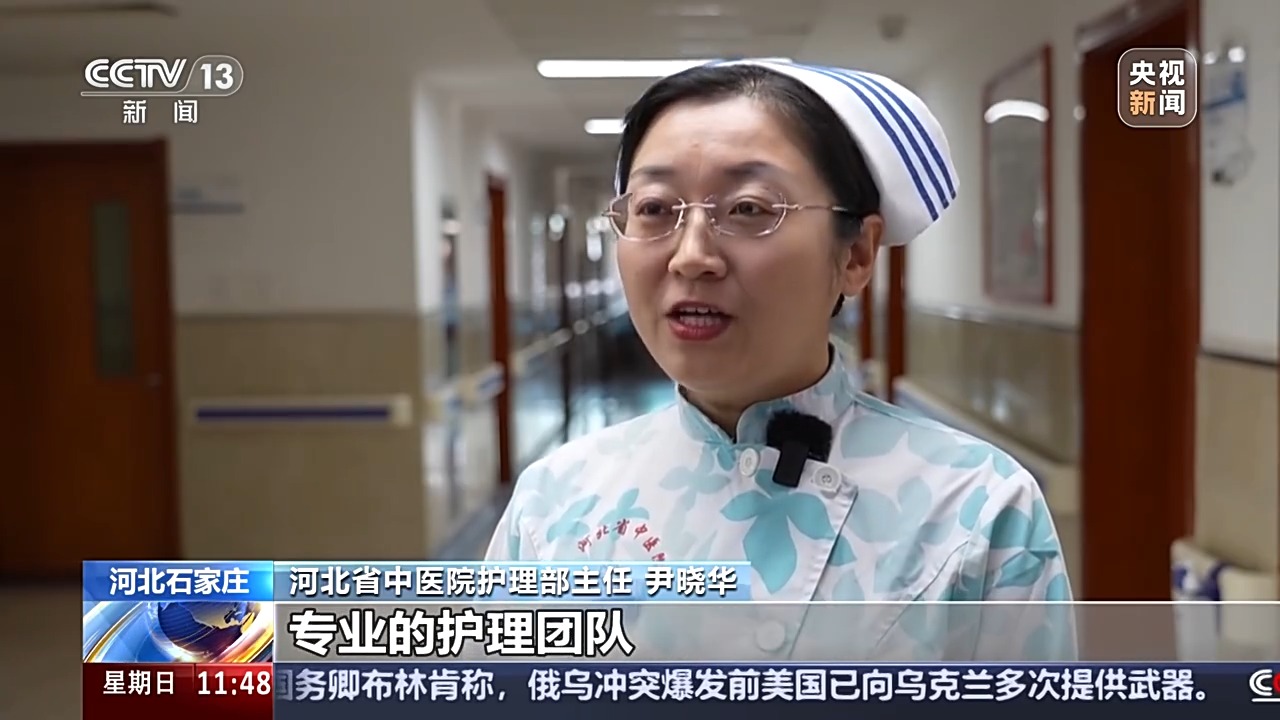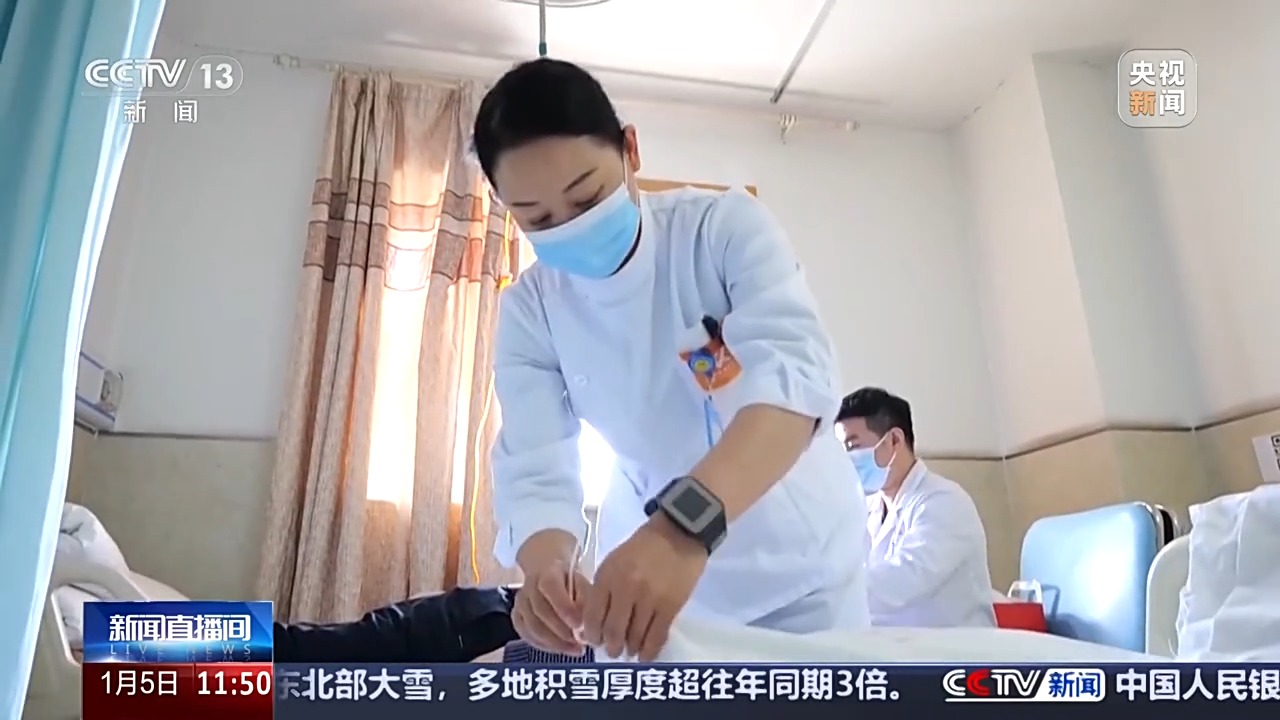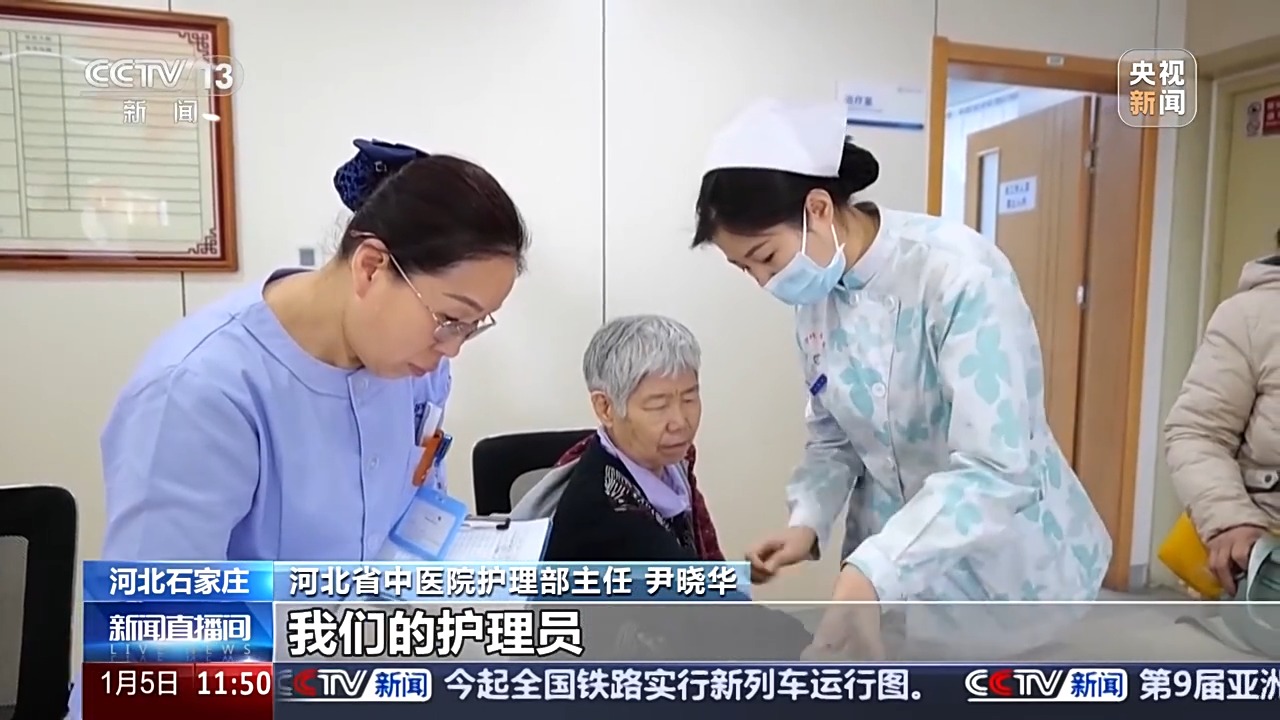Nursing during the day, accompanying at night, and providing three meals a day. "When one person is hospitalized, the whole family is tired." This is a true portrayal of most people who are sick and hospitalized. Many only children are even more overwhelmed and extremely busy. In order to solve the problem of accompanying people, many hospitals in Shijiazhuang, Hebei Province have established "unaccompanied wards" to allow patients to have companionship and care.
He Rui, 37, accidentally slipped and fell while riding an electric bicycle, causing a fracture of the tibial plateau of his left leg. Due to the sudden incident and her family being unable to take care of her for the time being, He Rui chose the one-to-many group holistic nursing service provided by the hospital.
In the past, the nursing staff hired by patients’ families had a high turnover, and their professionalism could not be effectively guaranteed. In the "unaccompanied ward", the working area and job responsibilities of the nursing staff are relatively fixed, they are more professional and can provide better care for the patients. From simple making and tidying up beds to providing basic care to patients, assisting patients to turn over and pat their backs, accompanying patients for examinations and delivering them, as well as feeding and preparing meals for patients, there are strict procedures and service standards here.
It has been more than seven years since Hebei Provincial Hospital of Traditional Chinese Medicine launched the "unaccompanied ward" in 2017. With the continuous development and advancement of unaccompanied escort services, the dilemma of "mobilizing the whole family when one person is sick" has been effectively alleviated through the joint collaboration with doctors, nurses, and workers.
 < /p>
< /p>
Yin Xiaohua, director of the Nursing Department of Hebei Provincial Hospital of Traditional Chinese Medicine: Now more than 60% of our departments can provide patients with unaccompanied services. The professional nursing team provides comprehensive, full-cycle care services to patients during their hospitalization, while also reducing the financial burden on the patient's family.
"Shared" caregivers
Doctor care is no longer difficult
The escort-free service in the unaccompanied ward does not mean that there is no one to accompany you, but that it is provided by standardized Trained nursing staff take the place of family members and assume all daily care of patients during their hospitalization. So how do caregivers provide care and what tasks do they do?
Early in the morning, caregiver Zhang Jianying has changed into her work clothes and started her day's work.
Zhang Jianying, 52 years old, has been working as a caregiver for more than two years. The fourth department of orthopedics and traumatology of Hebei Provincial Hospital of Traditional Chinese Medicine where she serves mostly has fracture patients who have difficulty moving and need to be pushed. Seek medical treatment.
The nurse here accompanied the patient to complete the examination, and the nurse there immediately seamlessly started treatment in the ward.
 < /p>
< /p>
The bedside pager can not only call the nurse, but also the caregiver. Nursing staff and nurses form a nursing team in the unaccompanied ward to provide patients with overall nursing services.
At present, the market price of "one-on-one" 24-hour escort services in Hebei is mostly around 300 yuan/day, while the price of escort-free group services implemented by many hospitals is relatively low, which not only alleviates It reduces the patient's financial burden and also makes the accompanying services provided by the patient safer and more reassuring.
 < /p>
< /p>
Director of the Nursing Department of Hebei Provincial Hospital of Traditional Chinese Medicine Yin Xiaohua: The fees for the escort-free group services offered by our hospital must reflect the public welfare nature of public hospitals so that patients can get more benefits. In addition to being required to obtain relevant professional qualification certificates, our caregivers are also required to undergo professional theoretical training and technical training before taking up their posts, so that our patients can receive more professional, considerate, and precise physical care services. Satisfied, family members are satisfied.



